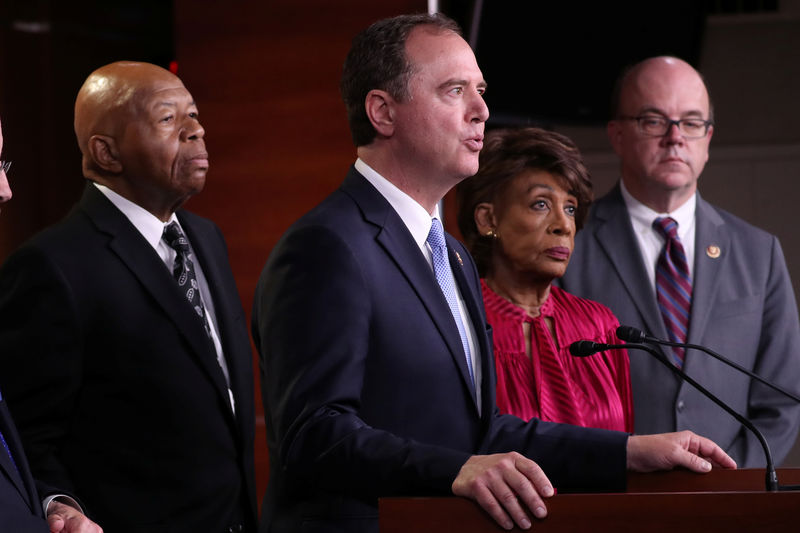By Jan Wolfe
(Reuters) - Democratic U.S. Representative Adam Schiff, the chairman of the House Intelligence Committee, on Wednesday said U.S. Special Counsel Robert Mueller must testify before Congress about his Russia investigation.
"In terms of Bob Mueller, he is going to have to testify. And, he can testify voluntarily or he can testify under subpoena, but it is going to have to happen," the prominent congressman said at a National Press Club event in Washington.
"I don't think a two-year investigation of this magnitude, followed by a written report and a 10-minute statement without questions, satisfactorily answers the many, many questions we have about the investigation," Schiff said, adding "time and patience are running out on that front."
Mueller’s report, released publicly in April, found Russia meddled in the 2016 U.S. presidential election and that Trump’s election campaign had multiple contacts with Russian officials. But the report found insufficient evidence to establish a criminal conspiracy between the campaign and Moscow.
The report, which was partially redacted, also outlined instances in which the Republican president tried to interfere with Mueller’s investigation but declined to make a judgment on whether that amounted to obstruction of justice.
Attorney General William Barr said there was insufficient evidence in Mueller's report to conclude that Trump obstructed justice, but some Democrats have said the president should be removed from office through impeachment proceedings because of Mueller's findings.
Schiff also criticized Trump for saying in a recent ABC News interview that he would see nothing wrong in accepting damaging information on a U.S. political opponent if it were offered to his re-election campaign by a foreign government.
Trump's comments sent a message to the Russians that they "are free to intervene in the next election as long as they intervene on the president's side, and he will not have the guts to call them out on it," Schiff said. "He may even be grateful."
Schiff also warned of Russia potentially interfering in the November 2020 election, saying Moscow could try to damage Democratic Party presidential candidates by disseminating forged documents or altered videos of them known as "deepfakes."
Other nations, like North Korea, or even U.S. citizens could also adopt those tactics and seek to influence the election, Schiff said.

"We speed toward the 2020 elections in an environment in which there are new technologies like deepfakes that are potentially hugely disruptive, and even less attributable than a hacking and dumping operation, and we are not nearly as prepared as we should be," Schiff said.